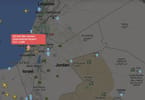Investors planning developments worth trillions of US dollars are being warned to devise contingency plans to account for all eventualities.
Rohit Talwar, the author of an insightful report outlining the Future of Travel and Tourism in the Middle East has noted that investors have been bullish about the global economic outlook and have earmarked $3.63 trillion for Middle East tourism projects spanning hotels, leisure facilities, aviation, cruise lines, tourism promotion and supporting infrastructure.
However, there are “six critical factors that could cause turbulence and confusion and have an adverse economic impact in the coming years: the global economic outlook, environmental challenges, human resources, safety and security, infrastructure and information availability and reliability”, he said. “I believe that an adverse outcome on any one or more of these factors could act to slow growth or even reduce demand.”
Talwar is the CEO of UK-based think-tank Fast Future and Global Futures and Foresight (GFF), which carried out a study of tourism developments planned for 13 Middle Eastern countries for the period to 2020 in order to take a “future perspective on key trends and drivers shaping the travel and tourism sector”.
Key findings include plans to invest at least $580 billion in more than 900 hotels across the region, from Syria to Oman, equating to 750,000 rooms, while Dubai’s Jebel Ali Airport, when completed, will be the biggest in the world boasting a capacity of 120 million passengers annually.
The largest components of the $3.63 trillion planned investment were $1042 billion for leisure developments and $1813 billion for tourism promotion and its supporting infrastructure.
However, Talwar revealed that when collecting data from the many sources to compile the study, not one had made provisions for any of the “six critical factors”.
“Most said they hoped none of these would happen, but you can’t build a strategy on hope; you need plan B and plan C,” he said. “What will these investors do if there is a softening of the global economy, as many believe there will be, if there is an outbreak of an infectious disease, or if an environmental disaster takes place?”
Talwar said the worst-case scenario would be if the US, Europe and Asia all entered recession and the growth of the Chinese and Indian economies came to a halt – a scenario, he said, that was not out of the question.
“There are many different economic scenarios that could be played out; investors must deliver different business models to take these into account,” he warned.
arabianbusiness.com






















